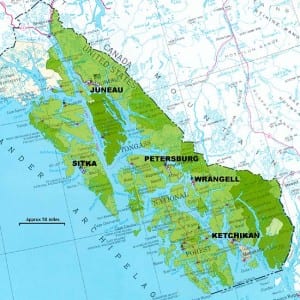At the U.S. Capitol, Sen. Lisa Murkowski and Congressman Don Young are working on separate bills to block a change in management of the Tongass National Forest. The Forest Service wants to transition away from the harvest of old-growth trees and offer the logging industry young trees instead.
In the House Resources Committee Wednesday morning, Rep. Young said the plan doesn’t make sense for the industry or the forest.
“Can you imagine killing all your kids? It’s what they’re doing,” Young said. “That’s really what they’re doing. And keeping the old people alive.”
The committee approved Young’s measure, which would block the transition until a full inventory of young growth timber is completed. That’s not likely to occur before time runs out on the Obama administration.
Murkowski included a similar measure in a spending bill that funds the Forest Service. She says the planned transition would kill what’s left of the timber industry in Southeast.
Andrew Thoms, director of the Sitka Conservation Society, says the lawmakers’ actions are disheartening. Thoms served on the Tongass Advisory Committee that helped craft the transition plan, along with timber industry representatives.
“And you know, I’d hope that the senator would have seen that people from Alaska worked together and wanted to turn the page away from the divisiveness and conflict of the past and move to a future where we’re all working together and finding solutions,” he said. “And to have the carpet pulled out from under us from our senator when we’re trying to work together is disappointing.”
Thoms says the industry has to recognize that market conditions and the Tongass itself have changed.







